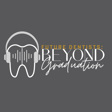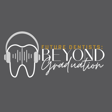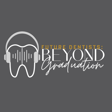
Building a Self-Determined Future Through Effective Dental Practice Systems
About the Hosts:
Dr. Savanah Craig is a practicing dentist who has navigated her early career with a focus on building a self-determined professional path. Having graduated with a profound skill set in dentistry, Dr. Craig is also a core team member at IgniteDDS, where she contributes her insights into creating effective practices and systems.
Dr. Ronnetta Sartor is an accomplished dentist and a member of the IgniteDDS core team. Dr. Sartor holds extensive experience in managing dental practices and has transitioned through various stages of her professional journey. Her expertise lies in establishing effective processes and patient relationships, which she shares through coaching and mentoring at IgniteDDS.
Episode Summary:
Welcome to another compelling episode of "Beyond Graduation," hosted by Dr. Savanah Craig and Dr. Ronnetta Sartor. Together, they delve into the complexities and strategies surrounding career development beyond dental school. This episode is focused on building a self-determined future through strategic people management, process implementation, and the application of effective systems within a dental practice. Guided by IgniteDDS's principles, the hosts share their personal experiences, shedding light on the significant impact these strategies can have on both personal and professional growth.
Throughout the episode, they emphasize the importance of having the right people in your practice and life. Highlighting the power of establishing rapport and understanding patient needs, they discuss strategies for managing challenging relationships. They also explore how defining and honing processes can relieve team stress and streamline operations, leading to a more efficient practice. The conversation switches to the significance of systematic approaches in managing patient no-shows and cancellations, providing an insightful look into balancing human elements with business necessities.
Key Takeaways:
- Having the right people on your team and in your life is crucial for minimizing energy-draining situations and achieving a self-determined future.
- Implementing structured systems and processes can significantly enhance practice efficiency and patient management, contributing to career satisfaction.
- Comprehensive dentistry involves considering the patient's entire health profile, not just isolated dental issues.
- Properly managing common challenges like patient no-shows requires understanding and communicating policies clearly, ensuring team and patient accountability.
- Engaging in candid conversations with the team about practice systems can foster greater buy-in and improve overall practice culture.
Connect with Us:
- Savanah Craig, DDS: @savanahcraigdds
- Ronnetta Sartor, DMD: @dr_sartor
- FutureDentists Beyond Graduation: @futuredentistsbeyondgraduation
- FutureDentists: @futuredentists
- IgniteDDS and IgniteDDS Coaching: @ignitedds and www.ignitedds.com
Join Dr. Craig and Dr. Sartor on this insightful examination of dental practice management and personal growth. Make sure to tune into the full episode for more captivating discussions and stay connected for future content from the "Beyond Graduation" podcast series.



